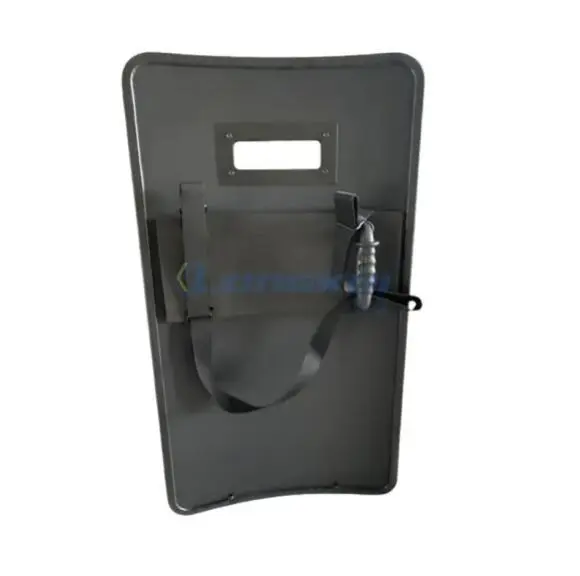10 Things to Consider When Buying Bulletproof gear
1. Level of Protection
One of the most important factors to consider when purchasing bulletproof gear is the level of protection it offers. Bulletproof vests, helmets, and plates are typically rated according to the National Institute of Justice (NIJ) standards, ranging from Level II-A to Level IV. Each level is designed to stop different types of ammunition, so it’s essential to choose a level that matches your potential threat exposure.
Choosing the Right Protection Level
If you're dealing with threats from handguns, Levels II or III-A might be sufficient. However, for protection against rifle rounds or armor-piercing bullets, you'll need higher-rated gear, such as Level III or IV.
2. Weight and Comfort
The weight of bulletproof gear is another critical consideration, especially if you plan to wear it for extended periods. Heavier materials like steel provide better protection but may restrict mobility and cause fatigue. Lighter materials like polyethylene or Kevlar are easier to wear but may not offer the same level of protection.
Balancing Protection and Mobility
Think about your intended use. For example, law enforcement officers who need to stay mobile should opt for lightweight materials. On the other hand, if you’re stationed in a static defense position, heavier gear could provide more security.
3. Durability
The durability of your bulletproof gear is essential for long-term use. Some materials, like Kevlar, can degrade when exposed to moisture or UV light, while ceramic plates may crack upon impact and need replacement. Ensure that the gear you purchase is built to last under the conditions you’ll be using it in.
Maintenance Considerations
Regular maintenance and inspection of your gear will help extend its life. Be sure to check for any signs of wear and tear, especially after any significant impacts.
4. Fit and Adjustability
Bulletproof gear should fit snugly without restricting movement. Many vests and carriers come with adjustable straps to ensure a custom fit. It's important to find gear that can be tailored to your body shape and size, as poorly fitting armor can leave vulnerable gaps or cause discomfort.
Custom Fit Options
If you're in a profession that requires daily use of bulletproof gear, it may be worth investing in custom-fitted options to maximize both comfort and protection.
5. Coverage Area
Different bulletproof Protective vests and plates offer varying levels of coverage. Some only protect the torso, while others provide protection for the neck, sides, and groin. Consider the areas of your body that need protection based on the risks you’re likely to face.
Full Body Armor Considerations
For high-risk professions like military service, opting for full-body armor that covers multiple areas of the body could be necessary to ensure comprehensive protection.
6. Concealability
Depending on the nature of your job, you may need bulletproof gear that can be easily concealed under clothing. Lighter and thinner materials, like Kevlar, are ideal for this purpose, while heavier plates may be more challenging to hide.
Discreet Protection
For undercover law enforcement or personal protection, consider gear that offers a balance of protection and concealability to avoid drawing attention.

7. Cost
The price of bulletproof gear varies widely depending on the level of protection, material, and brand. It’s essential to set a budget but also prioritize quality over cost, as inferior gear can compromise your safety.
Balancing Quality and Budget
While it's tempting to opt for cheaper gear, investing in high-quality protection can make all the difference in a life-threatening situation.
8. Certification and Testing
Make sure the bulletproof gear you're purchasing has been tested and certified by recognized authorities like the NIJ. This ensures that the gear meets specific safety standards and will perform as expected when needed.
Importance of NIJ Certification
Always look for NIJ certification on the product. Non-certified gear might not offer the same level of protection and could fail in a critical moment.
9. Compatibility with Other Equipment
If you're using other protective or tactical gear, such as helmets or tactical vests, it's essential to ensure that your bulletproof equipment is compatible. Some vests have slots for additional plates or can be worn with other gear seamlessly.
Integration with Tactical Gear
Consider how your gear integrates with other protective equipment, especially in situations where you need to quickly switch between various forms of protection.
10. Warranty and Support
Finally, consider the warranty and customer support provided by the manufacturer. Bulletproof gear is a significant investment, and knowing you have a warranty in case of defects or issues is reassuring. Additionally, strong customer support can help you with repairs, replacements, or questions about your product.
Long-Term Investment
Look for manufacturers that offer long-term warranties and have a solid reputation for supporting their customers, ensuring that your investment in safety is well-protected.
Conclusion
When buying bulletproof gear, it’s essential to consider a range of factors, from protection level to durability and comfort. By understanding your specific needs and matching them to the right materials and certifications, you can make a well-informed decision that will keep you safe in potentially life-threatening situations. Always prioritize quality and ensure that the gear you purchase has been tested to meet the necessary standards for your protection.

Comments
0